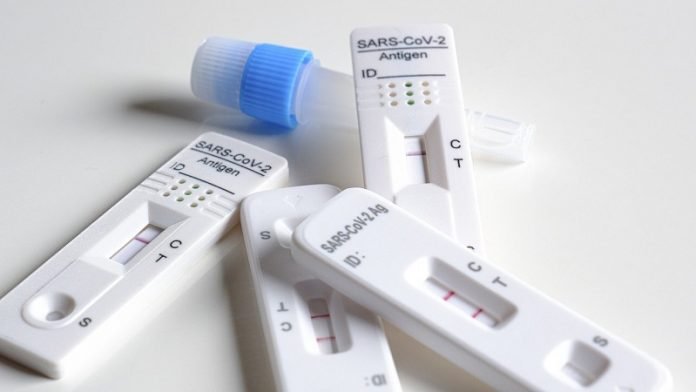
In a new study from University Hospital Zurich, researchers have developed a tool that could possibly predict which patients infected with COVID-19 will develop post-acute COVID-19 syndrome (PACS), also known as long COVID.
Not long after the pandemic began, doctors reported that some patients who recover from COVID-19 continue to experience symptoms such as a loss of smell and/or taste, difficulty breathing, and what they described as “brain fog,” long after they were virus-free.
With the pandemic now in its third year, many patients continue to experience PACS for unknown reasons.
In this study, the team tested the medical histories of 175 people who had COVID-19 and 40 people who remained uninfected throughout the study, which lasted for approximately one year.
During that time, they found that 82.2% of those who had severe infections wound up with long COVID as opposed to just 53.9% of the patients with mild infections.
They also found that patients with PACS also produced fewer IgM and IgG3 antibodies throughout the course of their infection than did those with milder infections.
Antibody levels of infected patients who did not develop PACS rose as infection set in.
The team also found that other risk factors played a role, as well—patients with asthma and those who were older tended to be more likely to develop PACS, for example.
The researchers combined all these factors to create a risk factor scale and tested it on another 395 COVID-19 patients.
They found the accuracy of the scale varied depending on a variety of factors, but overall, the scale effective for predicting which infected patients would develop PACS.
Notably, the scale only applies to people after infection.
Therefore, the researchers suggest more work is required to better understand why patients develop PACS and which people are more at risk should they be infected.
If you care about Covid, please read studies about why some people get ‘long COVID’ while others don’t, and your eyes could show signs of ‘long COVID’.
For more information about health, please see recent studies about how Long COVID could harm your immune system, and results showing that COVID-19 booster shots prompt stronger, longer protection than original shots.
The study is published in the journal Nature Communications. One author of the study is Carlo Cervia.
Copyright © 2022 Knowridge Science Report. All rights reserved.



